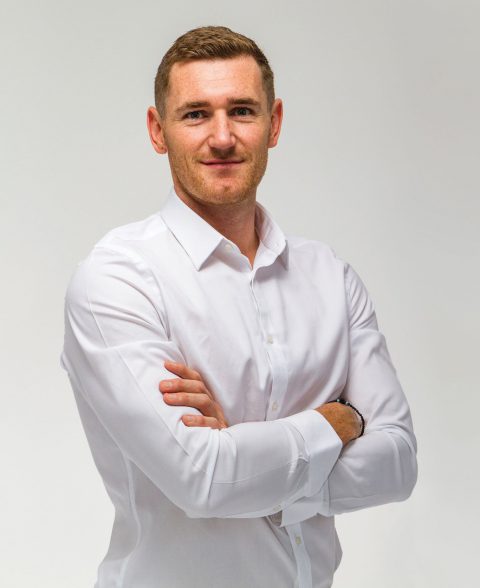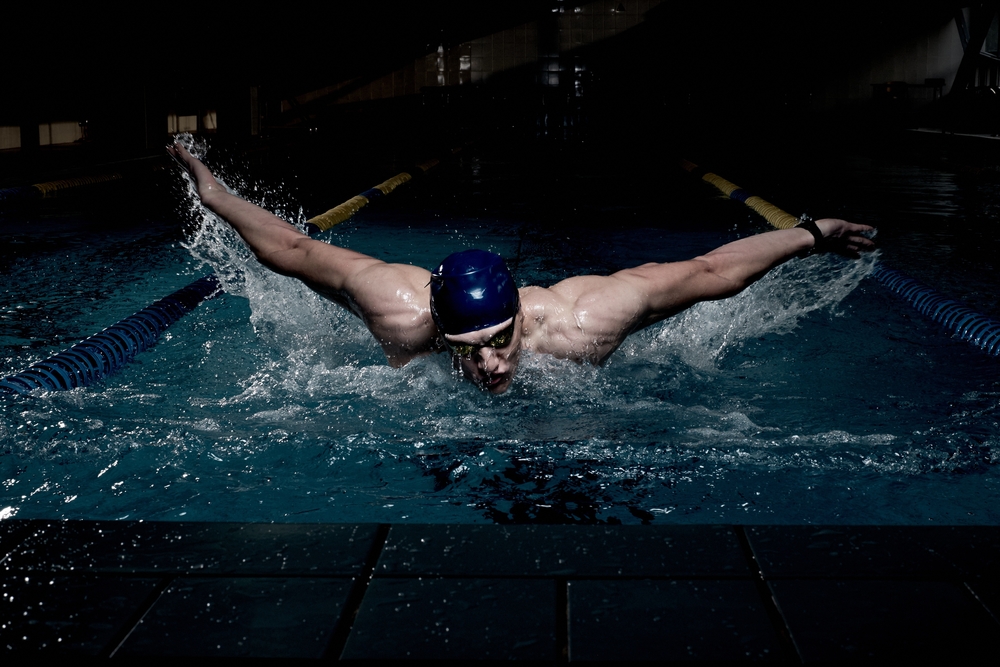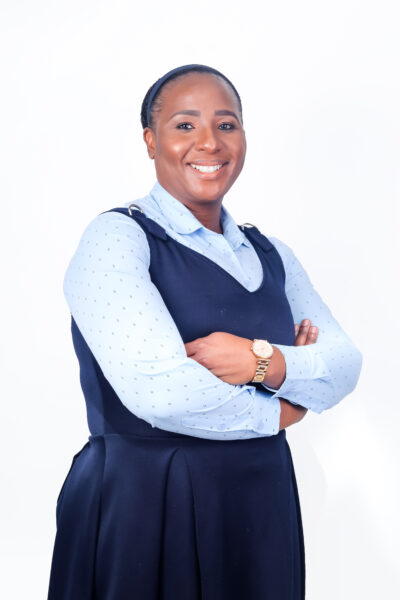Sunday Times Healthy Times
Ripped & Ready
Cameron van der Burgh has been in serious training for the biggest day of his life. He has been lifting, huffing and puffing, chiselling and buffing the body that has made him one of the greatest breastrokers in the history of swimming. He wants to be, as Elvis once sang, a hunk of burning love, for his wedding day.
His marriage to Nefeli Valakelis, his partner since 2013, will take place on a beach in Athens, and he is building a beach body. I want to look good in the photos, smiled Van der Burgh. You have to be in shape for your wedding. So, that’s what I’ve mainly been training for since the Commonwealth Games.
Van der Burgh came home from his third and final Commonwealth Games in the Gold Coast in Australia in April with a bronze and a gold medal, setting a Games record in the 50m breaststroke to secure the latter. His career has been a celebration of what is possible, as he became the first South African home-trained swimmer to break world records and win Olympic gold. The image of Van der Burgh lying on the rope in the pool at the London Olympics, having won the 100m breaststroke in a world-record time, is one that will endure in South African sporting lore.
Swimming was his salvation. As a child he had a mild form of ADHD, but Van der Burgh says the medication he was given made him numb and changed him from a boy with a bubbly personality to one who came home from school and stared at the wall. A teacher saw talent in the 10-year-old and suggested to his mother, Bev, that he take up the sport as an alternative to drugs.
Swimming was a form of meditation for him, the quiet and the freedom from gravity shaping the boy into an athlete, and the athlete into a man. His body was a tool with which he forged a career and earned a living. Maintaining his health has, naturally, been a vital part of his life. He has his diet down to a detailed programme.

“I’m definitely a health nut. I watch what I eat and drink,” said Van der Burgh. “It goes in cyclical, four-month phases with swimming. So, the first month, I’m more casual, eat more carbs, the next two months I eat an equal amount of carbs and fat and proteins. The last month, then I really cut down on the carbs. I’m very particular about what I eat as I try to lose weight in the build-up to the competition with the lowest body fat that I can get to.”
“After racing, I just eat what I want for two or three weeks, (and) pick up some weight.”
“In that last month, I would have dropped three kilos, in the next month I would pick up three kilos again. I do worry about shaking hands, and I am also particular about that more towards when I am racing so I don’t get sick. That’s my normal life. I have a healthy lifestyle because it has become easy for me.”
What he puts into his body determines what he gets out. Before the 2012 Olympics, Michael Phelps, the American swimming superstar who is the most decorated Olympian with 28 medals, was reported to eat 12 000 calories a day, a diet that consisted of three fried-egg sandwiches, a five-egg omelette, French toast, three chocolate chip pancakes, pasta, pizzas and energy drinks.
“When I was training full-time, I was eating quite a lot, probably about five times a day. Because Phelps is a middle-distance swimmer he needed to eat more. I am more of a sprinter, a power-based athlete, so I need to watch what I eat because I don’t swim for as many miles. What I have changed now is that I fast in the morning until lunchtime. That comes with age because my metabolism has slowed down. I eat all my calories from between noon and eight at night. That’s been working very well for me.”
“On race day, I fast in the morning and don’t eat anything. Then go race. I have a protein shake, then a huge lunch of carbs, vegetables, protein seven hours before the race in the evening. Then I’d have another shake four hours before the race. Two-and-a-half hours before I get in the pool I have a yoghurt with honey or just some peanut butter and toast, some high-fat, high-energy and a little bit of carbs in there as well.”
Van der Burgh’s life has changed in the past two years. He and Valakelis have relocated to Cape Town and Van der Burgh has founded Touch58, a sports marketing and sponsorship agency, with Raymond van Niekerk, the internationally respected branding expert. Van der Burgh’s priorities have changed as he has had to manage his time more carefully.
“Before I was working full-time and I was swimming full-time, things were very different. Before, I was swimming for two-and-a-half hours in the morning, physio after that. Then I would go to gym from 3pm until about 4.30pm. In the pool again from 5-7pm. Then an ice bath for recovery. On the weekends, I would do an extra bit of running and stretching throughout the day.”
“Now that I am working, I swim in the morning and I do all my technical skills and aerobics. In the evenings, I’ll do cross fit, where I’ll do my anaerobic, VO2 max and threshold stuff in the gym. That’s just to keep my mind fresh after all these years of swimming.”
“The best part of the past two years with working full-time has been the break from swimming,” he says.
“It’s a monotonous sport. Going to the office, using your brain, has opened up new ways of thinking for me in terms of my swimming. It has made me think of ways I could be training better, swimming better. You think of so many options now,” said Van der Burgh.
“I’ve done well in my career, but you do think of how you could have done things better or a little differently. Working has, strangely enough, just made me not feel so tired. When I was training hard and not working, I would get tired, finish training and go home, and your mind was just doing nothing. You just get lazy and inactive. Now keeping the brain active is probably why I managed to do well at the Commonwealth Games.”
Having turned 30 in May, Van der Burgh would be considered old in some swimming circles, but he has some distance left to swim. He is planning to end his career at the Tokyo Olympics in 2020, but the lessons of his own family have enforced his dedication to maintain his health.
“I know that I will always look after myself for health reasons. My father, unfortunately, didn’t look after himself all that well and I have lived first-hand through that and his struggles with health. I would never want to become a prisoner of my own health, or my bad health, should we say,” he said.
“Even when I’m not racing – I’m only going to be racing in December again – I’m always looking for goals to set to help myself keep in shape. For instance, I have the wedding coming up, so there is just a mental thing of training to look good on the day of the wedding. There are mental things that sport has helped me with to be driven, to achieve my goals.”






 Sign-up and receive the Business Media MAGS newsletter OR SA Mining newsletter straight to your inbox.
Sign-up and receive the Business Media MAGS newsletter OR SA Mining newsletter straight to your inbox.